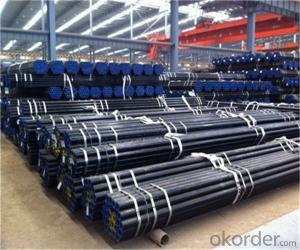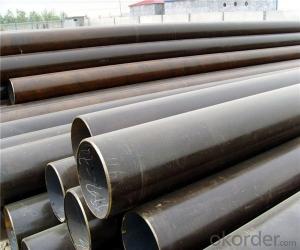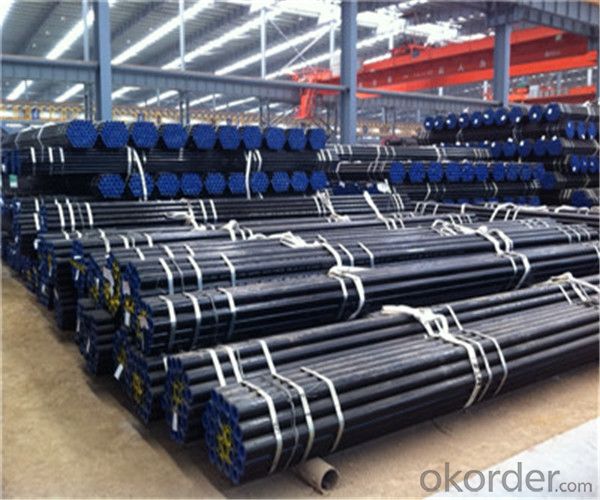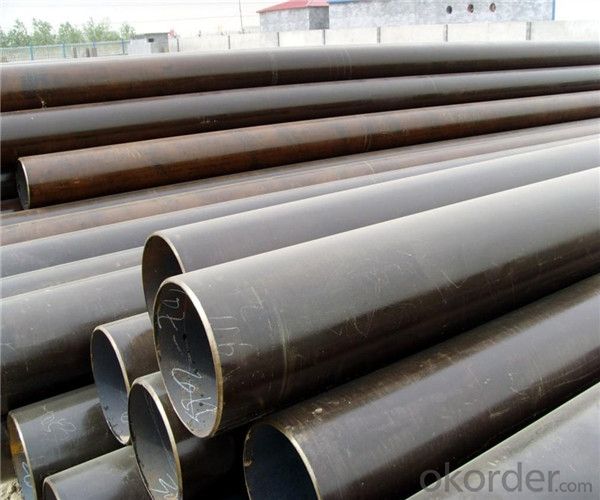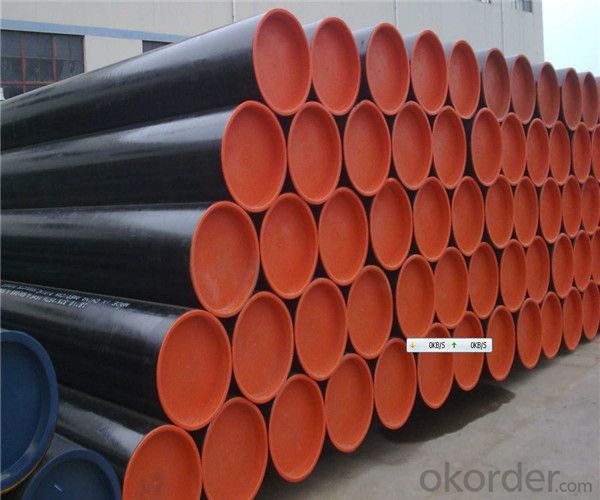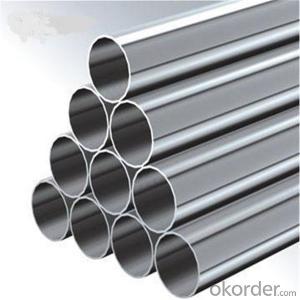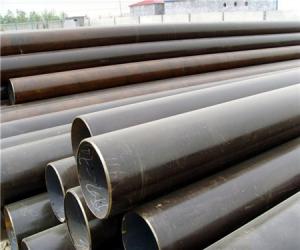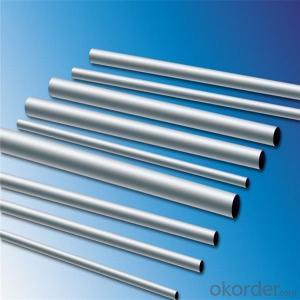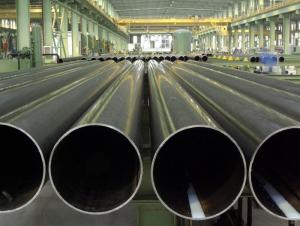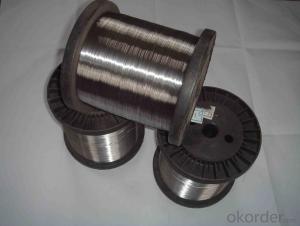Welded Steel Pipe High Quality and Hot Selling
- Loading Port:
- Tianjin
- Payment Terms:
- TT OR LC
- Min Order Qty:
- 25 m.t.
- Supply Capability:
- 1000000 m.t./month
OKorder Service Pledge
OKorder Financial Service
You Might Also Like
1、Structure of Welded Steel Pipe High Quality and Hot Selling:
Seamless pipe is formed by drawing a solid billet over a piercing rod to create the hollow shell. As the manufacturing process does not include any welding, seamless pipes are perceived to be stronger and more reliable. Historically seamless pipe was regarded as withstanding pressure better than other types, and was often more easily available than welded pipe.
2、Main Features of Welded Steel Pipe High Quality and Hot Selling:
• High manufacturing accuracy
• High strength
• Small inertia resistance
• Strong heat dissipation ability
• Good visual effect
• Reasonable price
3、Welded Steel Pipe High Quality and Hot Selling Specification:
Standard | GB, DIN, ASTM ASTM A106-2006, ASTM A53-2007 |
Grade | 10#-45#, 16Mn 10#, 20#, 45#, 16Mn |
Thickness | 8 - 33 mm |
Section Shape | Round |
Outer Diameter | 133 - 219 mm |
Place of Origin | Shandong, China (Mainland) |
Secondary Or Not | Non-secondary |
Application | Hydraulic Pipe |
Technique | Cold Drawn |
Certification | API |
Surface Treatment | factory state or painted black |
Special Pipe | API Pipe |
Alloy Or Not | Non-alloy |
Length | 5-12M |
Outer Diameter | 21.3-610mm |
Grade | 20#, 45#, Q345, API J55, API K55, API L80, API N80, API P110, A53B |
Standard | ASME, ASTM |
1) Material:20#(ASTM A 106/A53 GRB.API5LGRB,GB),45#,16Mn,10#.
2) Specification range:OD:21.3-610mm,WT:6-70mm,length:6-12m or according to the requirement of clients.
3) Excutive standards:GB,ASME API5L.ASTM A 106/A53,Despite of the above standards,we can also supply seamless steel pipe with standard of DIN,JIS,and so on,and also develop new products according to the requirements of our clients!
4) Surface:black lacquered,varnish coating or galvanized.
5) Ends:Beveled or square cut,plastic capped,painted.
6) Packing:bundles wrapped with strong steel strip,seaworthy packing.
4、Packaging & Delivery
Packaging Details: | seaworthy package,bundles wrapped with strong steel strip |
Delivery Detail: | 15-30days after received 30%TT |
5、FAQ of Welded Steel Pipe High Quality and Hot Selling:
①How is the quality of your products?
Our products are manufactured strictly according to national and internaional standard, and we take a test
on every pipe before delivered out. If you want see our quality certifications and all kinds of testing report, please just ask us for it.
Guaranteed: If products’ quality don’t accord to discription as we give or the promise before you place order, we promise 100% refund.
②How about price?
Yes, we are factory and be able to give you lowest price below market one, and we have a policy that “ for saving time and absolutely honest business attitude, we quote as lowest as possible for any customer, and discount can be given according to quantity”,if you like bargain and factory price is not low enough as you think, just don’t waste your time.Please trust the quotation we would give you, it is professional one.
③Why should you chose us?
Chose happens because of quality, then price, We can give you both.Additionally, we can also offer professional products inquiry, products knowledge train(for agents), smooth goods delivery, exellent customer solution proposals.Our service formula: good quality+good price+good service=customer’s trust
SGS test is available, customer inspection before shipping is welcome, third party inspection is no problem.
6、Welded Steel Pipe High Quality and Hot Selling Images:
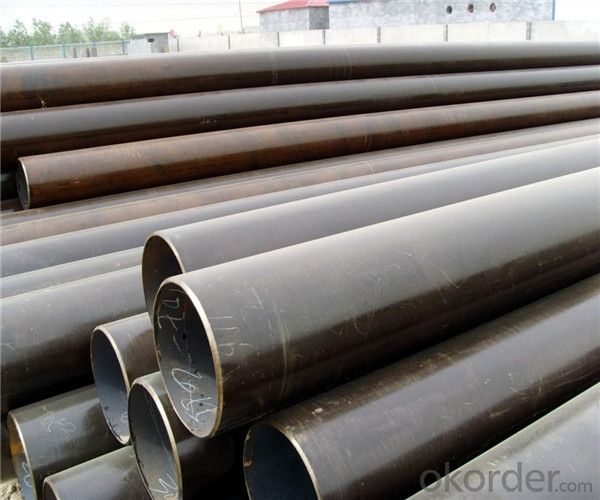
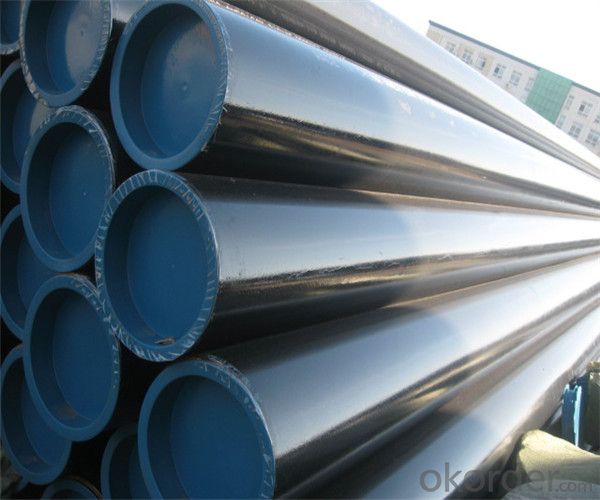
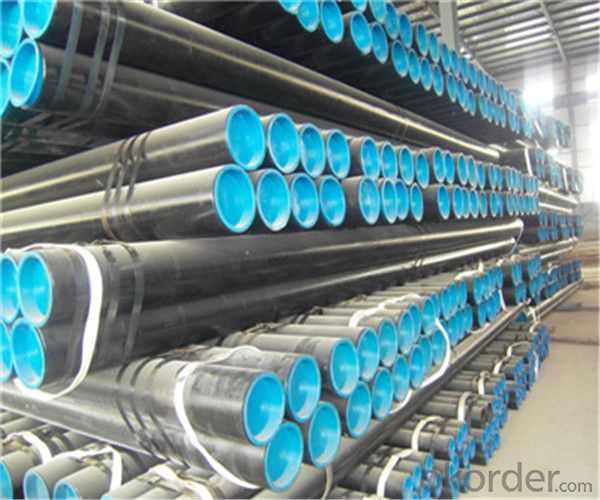
- Q: How are steel pipes protected against galvanic corrosion?
- Steel pipes are protected against galvanic corrosion through the use of sacrificial anodes, coatings, or the application of electrical currents. These methods create a barrier or redirect the corrosion process, preventing the steel pipes from deteriorating due to galvanic reactions.
- Q: How are steel pipes measured and specified?
- Steel pipes are measured and specified based on their diameter (nominal pipe size or NPS) and wall thickness (schedule or SCH). The NPS represents the internal diameter of the pipe, while the SCH indicates the thickness of the pipe walls. These measurements are crucial for ensuring proper compatibility and functionality in various applications, such as plumbing, construction, and industrial processes.
- Q: How are steel pipes used in the aerospace industry?
- Steel pipes are widely used in the aerospace industry for various applications. One of the primary uses of steel pipes in aerospace is for the construction of aircraft frames, where they provide the necessary strength and structural integrity. Steel pipes are often used in the fuselage, wings, and landing gear of airplanes, as well as in rocket launch vehicles and space shuttles. Steel pipes are favored in the aerospace industry due to their exceptional strength-to-weight ratio. They are lightweight yet incredibly strong, allowing for the construction of durable and reliable aerospace structures. This is particularly crucial in the aerospace industry, where weight reduction is a significant concern to enhance fuel efficiency and overall performance. Additionally, steel pipes are also utilized for the transportation of fluids and gases within aircraft systems. They are commonly used in the aircraft's hydraulic and fuel systems, carrying crucial fluids such as hydraulic fluid, fuel, and coolant. Steel pipes ensure the safe and efficient flow of these fluids throughout the aircraft, contributing to its proper functioning and performance. Furthermore, steel pipes are employed in the aerospace industry for heat transfer purposes. They are used as part of the aircraft's cooling systems, helping to dissipate heat generated by engines, electrical components, and other systems. Steel pipes are known for their excellent thermal conductivity, making them an ideal choice for transferring heat away from critical areas and preventing overheating. In summary, steel pipes play a vital role in the aerospace industry. They are used in aircraft construction for their strength and structural integrity, as well as for fluid and gas transportation and heat transfer. The use of steel pipes in the aerospace industry ensures the safety, efficiency, and reliability of aerospace structures and systems.
- Q: How are steel pipes protected during transportation and storage?
- Steel pipes are usually protected during transportation and storage through various measures such as coating them with anti-corrosion materials, wrapping them with protective films or tapes, using wooden crates or pallets for stacking and securing them with straps or bands. Additionally, pipes are often stored in covered or climate-controlled warehouses to prevent exposure to moisture and other potential damaging elements.
- Q: Can steel pipes be coated for additional protection?
- Yes, steel pipes can be coated with various materials to provide additional protection against corrosion, abrasion, and other environmental factors. Coatings such as epoxy, polyethylene, and zinc can be applied to enhance the durability and lifespan of steel pipes, making them suitable for diverse applications in different industries.
- Q: Stainless steel tube, also known as why tube?
- The longitudinal section can be divided into equal section tube and variable cross section tubeThe variable section tube has a conical tube, a stepped tube and a periodically cross section pipe, etc.
- Q: What is the purpose of steel pipes?
- The purpose of steel pipes is to provide a reliable and efficient means of transporting fluids and gases, such as water, oil, and natural gas, over long distances. They are also used in various industries for structural support, as well as in plumbing and construction projects.
- Q: What is the difference between steel pipe and HDPE pipe?
- Steel pipe and HDPE pipe are two different types of pipes that are used for various applications. The main difference between steel pipe and HDPE pipe lies in their composition and characteristics. Steel pipe, as the name suggests, is made of steel and is a strong and durable pipe material. It is commonly used in industrial applications and infrastructure projects where high strength and reliability are required. Steel pipes are known for their ability to withstand high pressure, temperature, and heavy loads. They are also resistant to corrosion, making them suitable for both above-ground and underground installations. On the other hand, HDPE (high-density polyethylene) pipe is made of a plastic polymer called polyethylene. HDPE pipes are lightweight, flexible, and easy to install, making them ideal for various applications such as water supply, drainage systems, and agricultural irrigation. They are resistant to chemicals, abrasion, and UV rays, making them suitable for both indoor and outdoor use. HDPE pipes are also known for their long service life and low maintenance requirements. In terms of cost, steel pipes are generally more expensive than HDPE pipes due to the raw material cost and manufacturing process involved. However, steel pipes are often chosen for their superior strength and durability, especially in applications where high pressure or extreme conditions are involved. HDPE pipes, on the other hand, offer a cost-effective solution for applications that do not require the same level of strength and durability as steel pipes. In summary, the main differences between steel pipe and HDPE pipe lie in their composition, strength, durability, and cost. Steel pipe is known for its strength and reliability, while HDPE pipe offers flexibility, ease of installation, and resistance to chemicals and UV rays. The choice between the two depends on the specific application and requirements of the project.
- Q: How are steel pipes used in high-rise buildings?
- Steel pipes are used in high-rise buildings for various purposes, including structural support, plumbing, and HVAC systems. They provide the necessary strength and durability to withstand the weight and forces exerted on tall buildings, while also facilitating the efficient distribution of water, gas, and air throughout the entire structure.
- Q: Can steel pipes be used for underground drainage systems?
- Yes, steel pipes can be used for underground drainage systems. Steel pipes are known for their durability, strength, and resistance to corrosion, making them suitable for underground applications. However, proper coating and maintenance are essential to ensure longevity and prevent rusting.
Send your message to us
Welded Steel Pipe High Quality and Hot Selling
- Loading Port:
- Tianjin
- Payment Terms:
- TT OR LC
- Min Order Qty:
- 25 m.t.
- Supply Capability:
- 1000000 m.t./month
OKorder Service Pledge
OKorder Financial Service
Similar products
Hot products
Hot Searches
Related keywords
